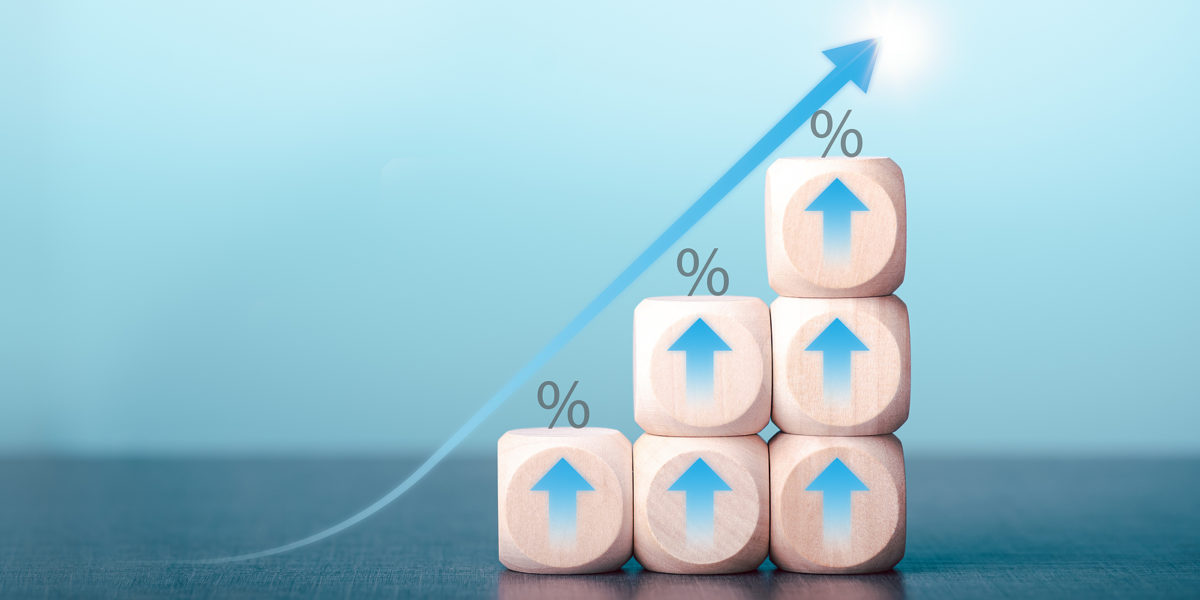5 Signs That Signal Interest Rates May Rise
5 Signs That Signal Interest Rates May Rise
In 2022 The Fed raised interest rates seven times, with the possibility of raising interest rates again in 2023 as they pursue cooling inflation. December 2022’s inflation rate was 6.5%, with the Fed Funds rate increasing to 4.4%, the rate banks borrow from The Fed.
Consumers borrow from banks at a marked-up rate, generally 2% or more, depending on the borrower’s creditworthiness. While a potential interest rate may occur or plateau, raising rates can take a toll on consumers. Here’s what to watch for that may signal an interest rate increase is on the horizon:
Mortgage rates start to increase
The 30-year fixed mortgage interest rate is based on the long-term outlook for interest rates. When rates increase, prospective buyers will see their costs rise. Homeowners with fixed-rate mortgages will be spared, but those with adjustable-rate mortgages may want to consider locking in their loan’s interest rate.
Credit card rates rise
All credit cards have adjustable rates and when interest rates rise, so do credit card interest rates. There is no federal law that limits the interest rate that a credit card company can charge. Therefore, consumers carrying balances may want to initiate a plan to pay off their debt or look for zero-interest rate balance transfer offers and transfer their debt. But read the fine print, as the offer may charge back interest if the balance isn’t paid in full by the offer’s balance payoff deadline.
Bond markets fall
Bond markets tend to decline as interest rates rise. In May 2022, Fed Chair Jerome Powell announced that the central bank would start to reduce its $9 trillion in Treasury bonds and mortgage-backed securities to reduce market liquidity further. Investors using bond strategies in their portfolio may want to monitor their portfolio and adjust holdings if appropriate as they continue to watch interest rates throughout 2023.
Personal loan rates increase
Personal loan rates may increase as the Fed Funds rate rises as banks borrow at a higher rate and pass that rate along with their markup to consumers. It will become more expensive to finance a car, college education, or consolidate debt. Home equity loan rates also increase as interest rates rise.
Bank deposit product rates increase
Money market accounts, savings and checking accounts, and CD rates rise. Banks often raise interest rates on these products to attract new customers or bring in more money. Consumers with lower-rate CDs or money market accounts may want to consider laddering- staging CDs to come due at different times to help accumulate more interest during rising rates versus being locked in at a lower rate. Also, determine if cashing out a CD, paying the penalty, and reinvesting in a new CD is appropriate for their situation.
While there is uncertainty if and when interest rates will go up, there are things you can do to help lessen the effect, such as:
- Paying off debt
- Refinancing debt now versus waiting
- Add inflation risk products such as fixed-indexed annuities to your portfolio
- Consider strategies that may provide accumulation based on a guaranteed rate and an index
Contact our office for a portfolio review today if you have concerns about rising interest rates and your portfolio.
SWG 2689191-0123c The sources used to prepare this material are believed to be true, accurate and reliable, but are not guaranteed. This information is provided as general information and is not intended to be specific financial or tax guidance. When you access a link you are leaving our website and assume total responsibility for your use of the website you are linking to. We make no representation as to the completeness or accuracy of information provided at this website. Nor is the company liable for any direct or indirect technical or system issues or any consequences arising out of your access to or your use of third-party technologies, websites, information and programs made available through this website.
In addition, Golden Care Financial was founded to expressly help clients navigate the challenges of retirement and remove unnecessary risk from their portfolios. As an Investment Advisor Representative with over twenty-five years of financial planning experience, Randy and his team have the dedication, knowledge and experience to help you plan your family’s financial future. Contact us today to get started and learn more about our team.






